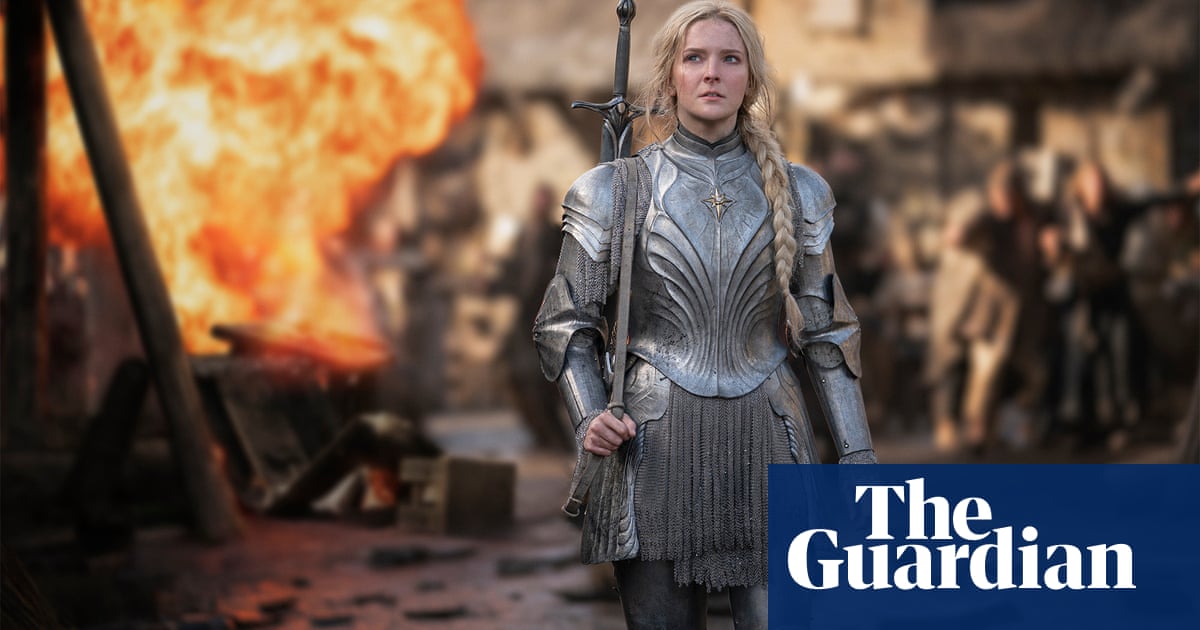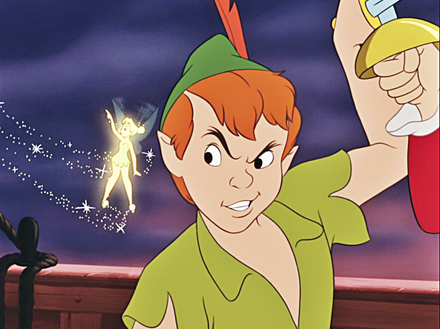Another thing: I don't know who the guy in the video is. He may know a lot about science fiction (which he says he prefers), he may be an online influencer that people listen to, and that is why the interview was filmed and spread around the internet, but whatever his qualifications otherwise, he does not appear to know much about Tolkien, fantasy, or movie making. Therefore, I don't think that he should be overly-influencing our expectations about the upcoming Rings of Power.
Here is another example of where he shows that he doesn't entirely know about Tolkien or what he was writing. At one point he was trying to think of the genre of LOTR and why, as a general rule*, he doesn't care much for it, he was reaching for the right term to use, and what he dredged up from the depths of his brain was "sword and sandal," which, sorry, is a completely different genre than epic fantasy. Tolkien wrote epic fantasy, inspired by the myths and legends of Medieval and Dark Ages western Europe. Sword and sandal is inspired by classical Greece and Rome, and is usually applied to movies with gladiators (hence sword and sandal) in Mediterranean lands, some centuries earlier than even the Dark Ages, and magic and magical races tend to be absent.
It's not a horribly egregious kind of mistake, but it does show that he's an odd choice to be asked to evaluate which movies are faithful to the spirit of Tolkien. As someone taking part in a discussion like this one, where he could interact with the rest of us, and exchange ideas, he seems like he might be a pleasant and intelligent person to share ideas with (and perhaps make some points that set the rest of us thinking, perhaps change some of his own opinions as he learned more), but as someone in a video which influences the opinions of others and worries the rest of us whether we might love or hate The Rings of Power ... it seems like a misguided attempt.
For instance, there is the quote from Jackson about not imposing his own ideas on Tolkien's story, which was certainly a laudable goal, and not having read LOTR or The Hobbit, this gentleman, while acknowledging that it was necessary to make some changes in order to adapt the story for cinema, believes that Jackson and his collaborators succeeded in staying faithful to the spirit of the work, which unfortunately (and if he had read The Hobbit and LOTR he would know this) was not always true. For example, the changes to Aragorn's character so that he would have a story arc that would inspire the sympathy of modern movie goers, that was very, very far from Tolkien's concept of Aragorn. One might explain that by saying that it was necessary to attract modern audiences who were not already Tolkien fans, but that argument is also an example of why Tolkien never really wanted to see his work adapted for the movies. Or take the architecture at Rivendell. I think the designs for Rivendell were beautiful and mystical and magical, and probably it was cinematically necessary to distinguish between Rivendell and, say, Hobbiton, but in the spirit of Tolkien? I rather think not. In The Hobbit, Elrond's home is more than once referred to as the last homely house west of the mountains—homely meaning comfortable, homelike—but the Rivendell we see in The Fellowship is too cold and ornate for that. As much as it appealed to me aesthetically, it chilled and disappointed me, so that even while I loved it, I also hated it.
And a third example: apparently during filming of the trilogy there were battle scenes of Arwen fighting side by side with other character, a battle-maid with sword in hand. At some point Jackson changed his mind about this. We have never seen stills or clips of those scenes, which have apparently been suppressed, and would not even know that they had existed if it had not been for some of the cast, notably Liv Tyler, telling anecdotes about things that were said and done between shots. But the point is, there was a time when Jackson felt that such scenes would be acceptable and in the spirit of the story. Whether someone else eventually talked him out of it, or he came to that conclusion by himself, he was not so much in tune with the spirit of Tolkien's trilogy that he didn't write and film those scenes in the first place. (However he came to leave out those scenes and write others to replace them, I wish the same thing had happened when he was filming The Hobbit, so that KIli's romance had similarly ended on the cutting room floor. But seemingly by the time they were filming The Hobbit, the great success of LOTR had made Jackson such an infallible figure that no one—including himself—urged him to rethink anything he wanted to do.)
I could go on, with other examples of things Jackson changed, some of which I think improved the films, some of which I think detracted, but in the end I loved those movies, and besides, he's not the one writing and directing The Rings of Power.
As for what we have seen of Rings so far, I don't know what to think. I don't like the shorter hair on the male elves, but that is my own personal aesthetic taste—I know of no reason why the men and elves of the second age should not have dressed themselves and worn their hair differently than the men we are are familiar with from the late third age—if, in fact, in was a choice made to distinguish them from the same or other characters in the later era, I suppose it was a good idea, even if it is not what I would have chosen (if they had all been wearing crew cuts I think that would have been a step too far for me, and I might not ever get over it, but still a matter of personal taste, not necessarily something they would have done wrong).
Galadriel as a warrior, again not a choice I would have made, but perhaps they will make it work. After all, we are seeing some of these characters thousands of years in the past of who they had become in LOTR. Those were centuries of war and tragedy and loss, so it makes sense that they would have been in many ways different people back then—I believe I would have been much more disappointed if they had gone through all that without being changed by their experiences (although in Galadriel's case, she'd already been through thousands of years of grief and hard life lessons by the beginning of the second age). So I am willing to wait and see. I figure if I let my expectations rise too high, even if it is quite good I may still be disappointed because it wasn't the marvel I hoped it would be. If I keep my expectations relatively low, and it turns out to be mediocre, I may fall in love with it out of gratitude that it wasn't worse. And frankly, I would rather enjoy it than not. If it's an outright disaster, I can stop watching after an episode or two, and I won't be any the worse off
But one more point I would like to make. When Jackson made LOTR he had a finished three-part novel as source material, a novel that had been through various drafts, revised, edited, and polished for publication. Jackson and his collaborators had all that, and still made changes (and some of them, in my opinion, ill-advised). But what the writers and producers of Rings are dealing with is an unfinished work. Tolkien had still not finished writing the story of the second age at the time of his death; it was incomplete; there are gaps that beg to be filled in (probably not the same gaps for all of us, and we probably won't all be happy with the decisions made even in those places where we agree that there should be decisions of some sort, but if they aren't addressed, we may all be united in thinking that they should have been). And that being so, I don't think it's quite fair to compare the two projects. Those who are involved in bringing them to the screen face different challenges, and many of those involved are different people with different ideas of what should be done. Of course they knew what they'd be facing, and knew that they would be criticized. I assume they are being very well-paid indeed. So no tears for them from me. But at the same time, I will wait until I have seen at least a full episode before I form any kind of opinion of what they have done.
_____
*He said, basically, "I don't usually care much for fantasy, so if I liked it, it must really be good." I have heard this kind of argument many times before involving other books and movies, and I have never quite bought it. Because it could go either way. Yes, it might be so wonderful that even people who don't usually love epic fantasy were won-over. Or it could appeal to people like him for the very same reasons why it won't appeal to long-time fantasy readers, such as many of us here.
Another thing he said, was that we know Jackson's LOTR was good because no one is talking about it, no one is criticizing it, or picking it apart and arguing about it. Well, I don't know where on earth he was when the movies first came out, or in the next several years afterward, but among the people I know—like the people who spend their time on sites like this one—we were talking about it plenty, criticizing it, arguing our opinions back and forth. We were talking about it a lot ... for whatever that means.






